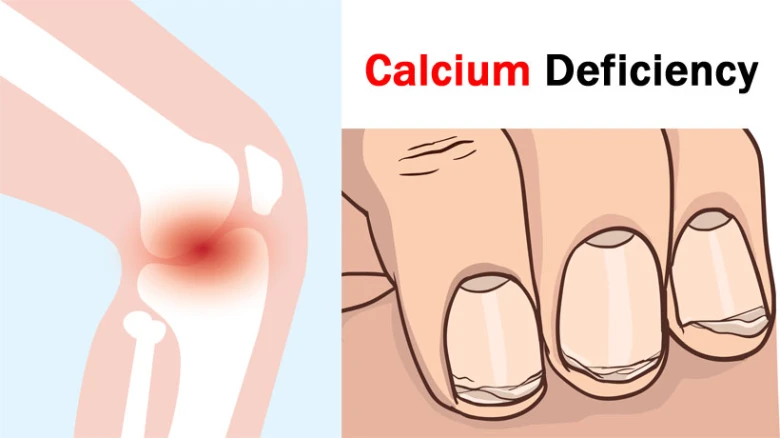North East

Women's calcium consumption becomes crucial throughout menopause to lower their risk of osteoporosis and calcium deficiency illness, or hypocalcemia.
Digital Desk: Calcium is an essential mineral. It is used by your body to create strong teeth and bones. Compared to men, women should start taking more calcium starting in middle age. This is because women go through menopause, which makes them need calcium. Women's calcium consumption becomes crucial throughout menopause to lower their risk of osteoporosis and calcium deficiency illness, or hypocalcemia. A study found that people who are vegan, vegetarian, or post-menopausal, as well as those who are intolerant to dairy, are more prone to vulnerability.
The majority of women who are deficient in calcium are ignorant of their condition. However, this illness may be indicated by a few common symptoms. The five signs of calcium insufficiency that can harm women's health and well-being are listed below.
SIGNS AND SYMPTOMS OF CALCIUM DEFICIENCY IN WOMEN
1. Brittle Nails: Do your nails split or break all the time? A calcium deficit is one of the several deficiencies that can be indicated by brittle nails. Low calcium levels can make nails fragile and more vulnerable to breakage. Calcium is vital for healthy nails.
2. Muscle Spasms: Both contraction and relaxation of muscles depend on calcium. Constant twitching, cramping, and spasms of the muscles might result from a deficit. These unpleasant and inconvenient spasms can happen in different muscle groups.
3. Toothache: Your bones and teeth contain 99% of the calcium in your body. It seems sense that you would be more prone to tooth decay and pain if your calcium levels fall. Additionally, there's a higher chance that you'll get periodontal disease.
4. Premenstrual cramps: Women who are deficient in calcium have severe discomfort during their menstrual cycles. Studies suggest that hypocalcemia could be a factor in severe PMS symptoms. Supplements containing calcium may also help manage the symptoms.
5. Fatigue: A calcium deficiency may be the cause of persistently poor mood and fatigue, even after getting a good night's sleep. Low calcium levels might cause sensations of exhaustion and sluggishness since they are important in the metabolism of energy.
Leave A Comment